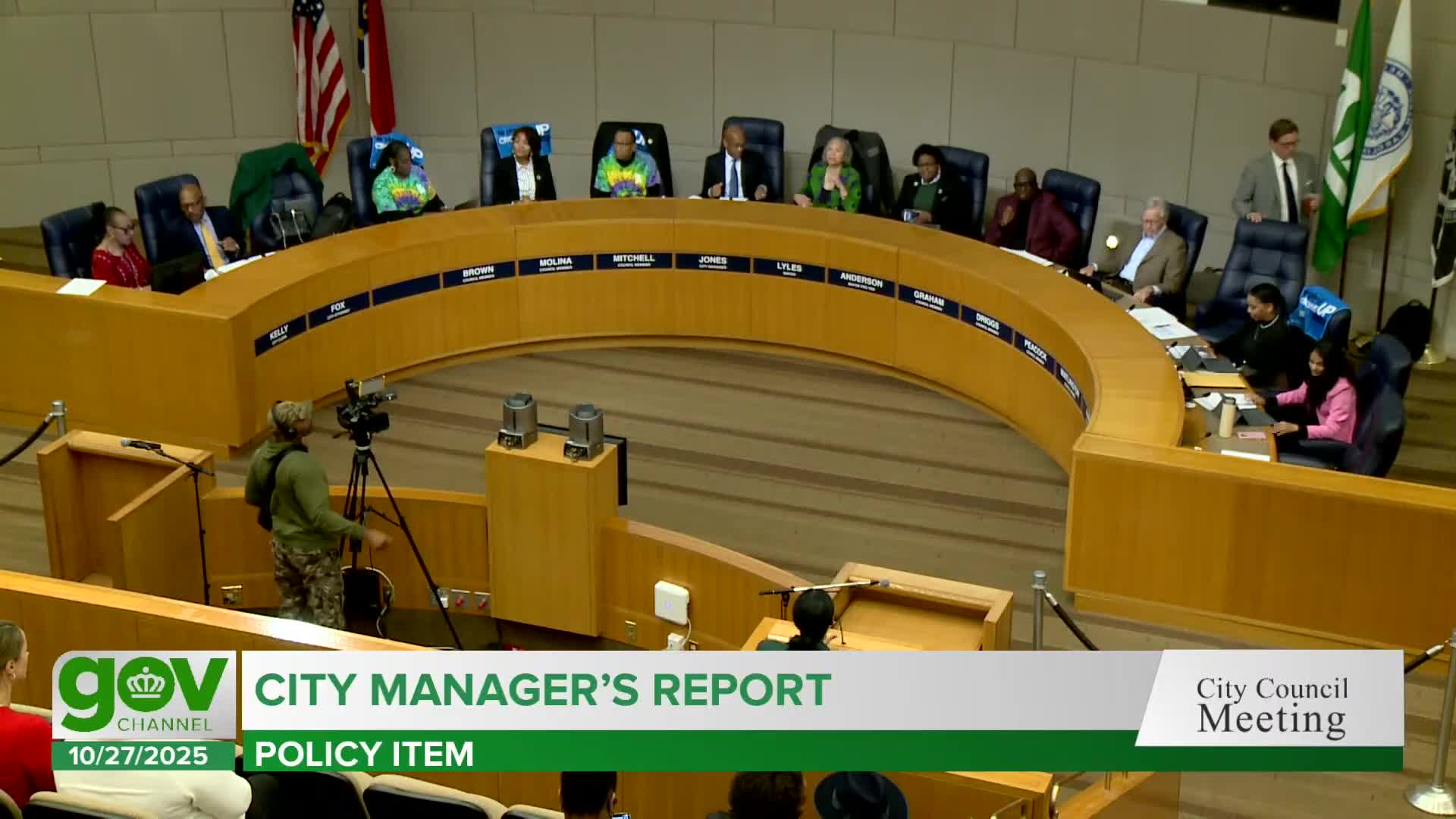City attorney outlines recommended changes to CharlottePassenger Vehicles for Hire rules
Get AI-powered insights, summaries, and transcripts
Subscribe
Summary
City AttorneyJessica Battle presented a package of recommended refinements to the city (PBH) ordinance after a year of stakeholder talks; she recommended nine targeted changes and internal process improvements and asked council whether to refer the package for formal ordinance changes.
City Attorney Jessica Battle presented council with recommended refinements to Charlotte Vehicles for Hire (PBH) ordinance on Oct. 27, saying the city had spent more than a year meeting with taxi and limo stakeholders and reviewing state law that separately governs transportation network companies (TNCs) such as Uber and Lyft. "We got here because the last major update to our PBH ordinance occurred including the addition of [ride] shares," Battle told council, and staff had sought changes that would improve operational clarity, speed application review, and protect consumer safety.
The city attorneyrecommended nine main changes: allow licensed taxicab companies to also operate as TNC drivers (but not simultaneously on the same ride); add clearer definitions for operators, TNCs and TNC drivers; narrow or remove certain city-specific driver training requirements; reduce the required drug-screening panel from 10 to five substances; refine when pending criminal charges block an application; set a floor for contract rates for agency-contracted trips; require metered rates for airport trips taken from the taxi line; raise the vehicle maximum age from 10 to 15 years; and permit required identification lighting on the windshield as an alternative to rooftop housings.
Battle emphasized statutory limits: state law prohibits municipalities from regulating TNCs, so the citycannot apply some proposals to ride-hail companies. She also proposed internal process reforms including an administrative appeals path (PBH manager then city manager designee, then superior court review of the record) and a goal to approve or deny PBH permits within seven business days of a complete application.
Councilmembers asked follow-ups. Mayor Pro Tem Dante Anderson and Councilmember Malcolm Graham asked whether peers use the airport-metered approach and whether TNCs had been consulted; Battle said some peer cities allow dual participation and that most direct outreach had been with taxi and limo companies. Councilmember Ed Driggs asked for comparative examples and said he wanted the city attorney to return with materials showing peer approaches; Councilmember Victoria Watlington asked that drivers be given an opportunity to comment. Several council members favored referring the recommendations to committee for further work; others said they did not want to delay drivers already waiting for improvements.
The presentation concluded with staff offering to bring formal ordinance edits back for a later business meeting if council directed staff to proceed.
"The PBH process is still very much relevant," Battle said, noting the ordinance preserves inspections, background checks and complaint processes that, in her view, protect consumer safety.
